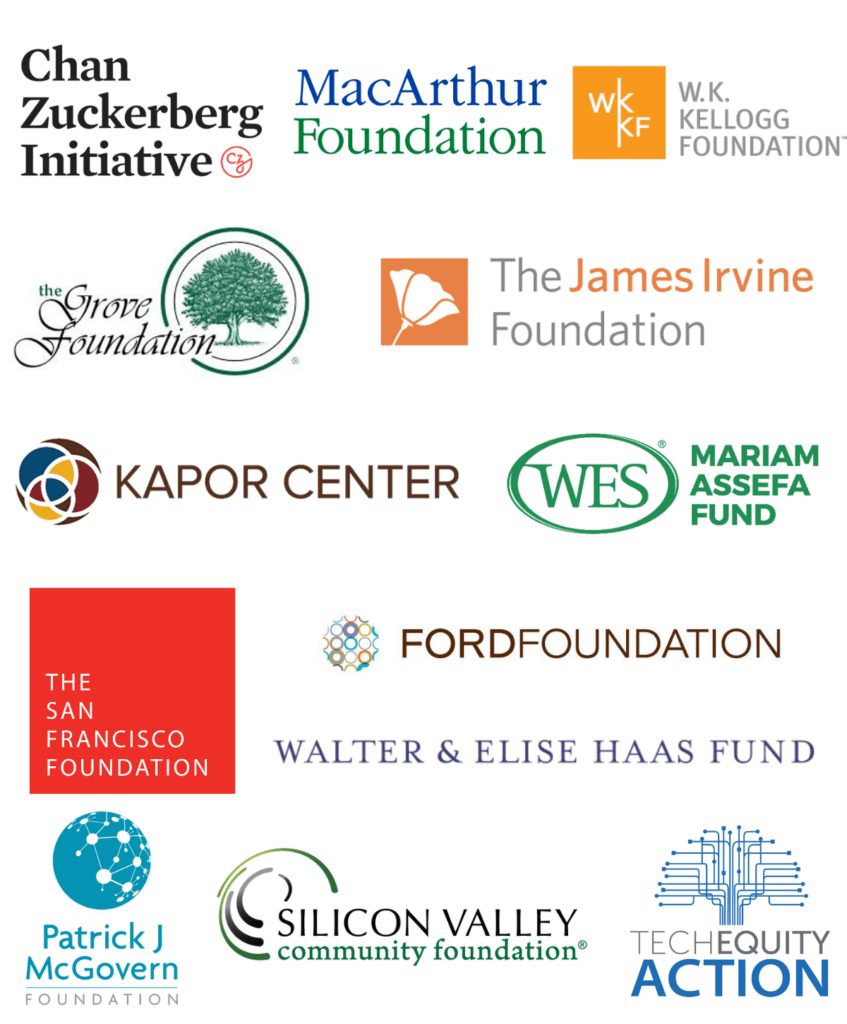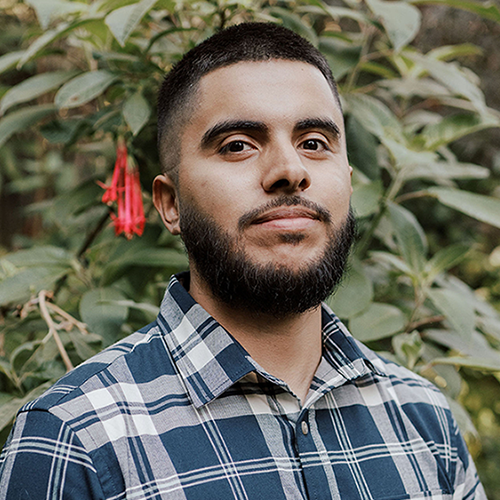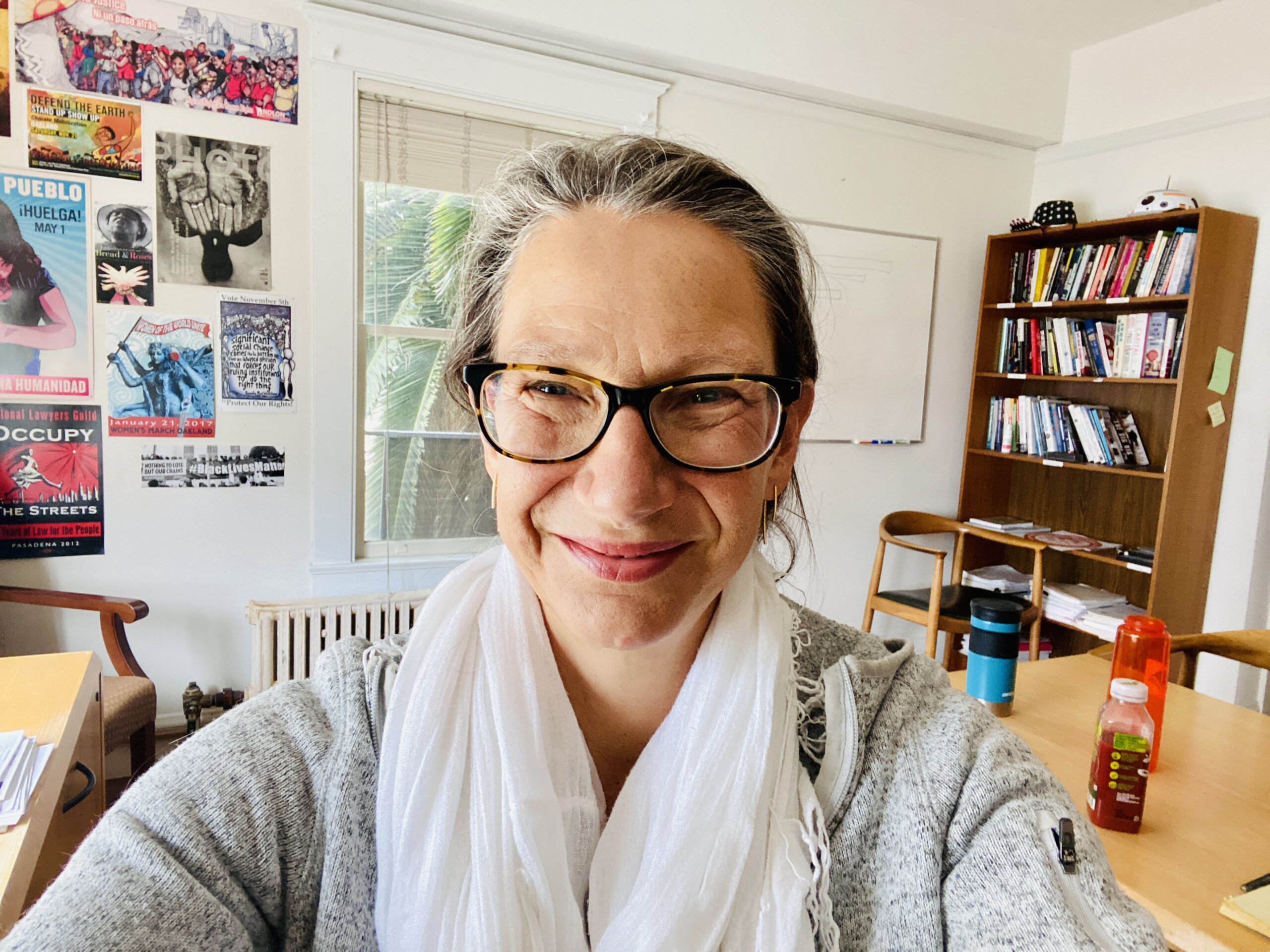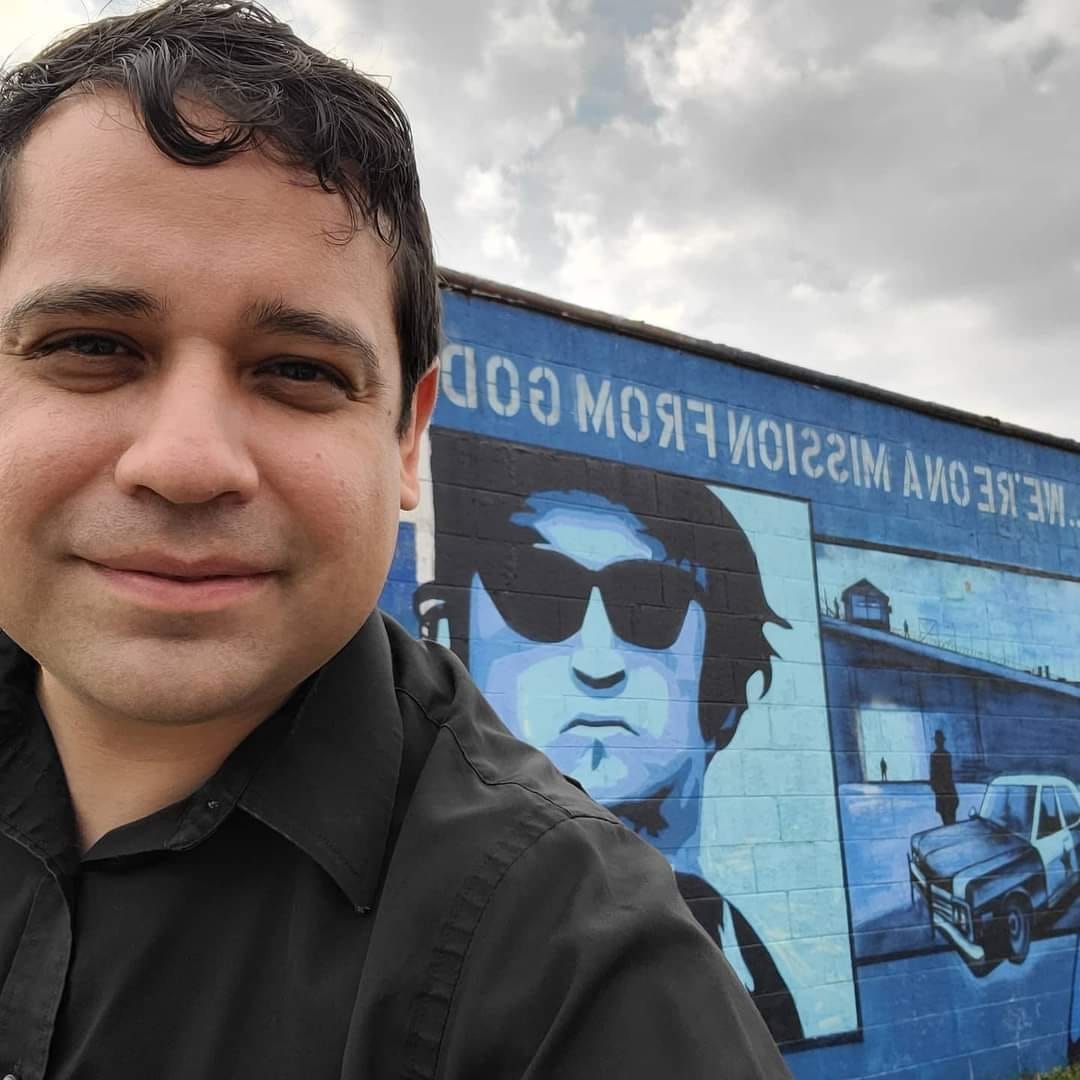
2022 Annual Report
Letter from Catherine Bracy, our CEO and Co-Founder
2022 was a tough year for tech. The pandemic-driven boom came to a bust for many tech companies, leaving about 160,000 tech workers out of a job last year. As is often the case, the fallout disproportionately hit the most marginalized workers in tech. Immigrant workers who have lived here for decades are now scrambling to secure new visas. Contract workers awoke to their jobs being terminated overnight, without so much as a day’s notice. Women and workers of color who chose a career in tech to lift their family out of poverty found themselves unemployed in expensive cities.
This new, uncertain era for tech exposes what we know to be true: we need to reshape our economy to ensure that everyone—content moderators, teachers, software engineers, grocery workers, everyone—has the floor they need to endure the hard times and the ability to benefit from prosperity in the good.
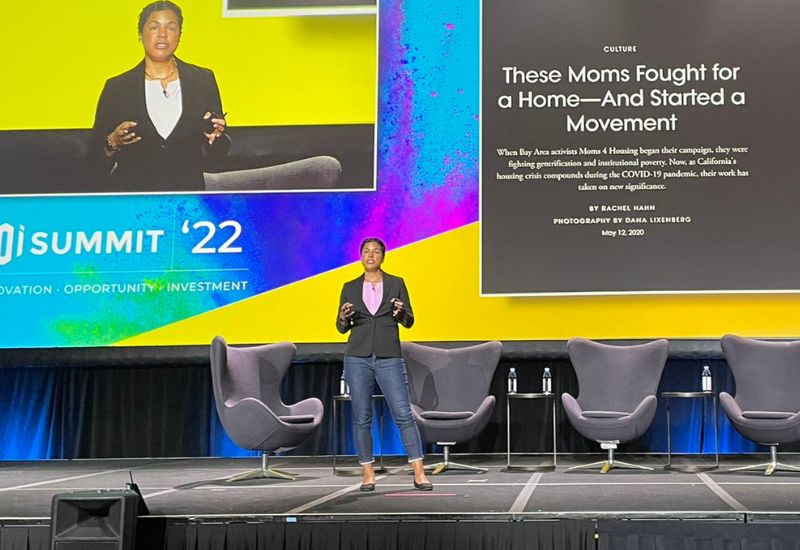
WHO WE ARE
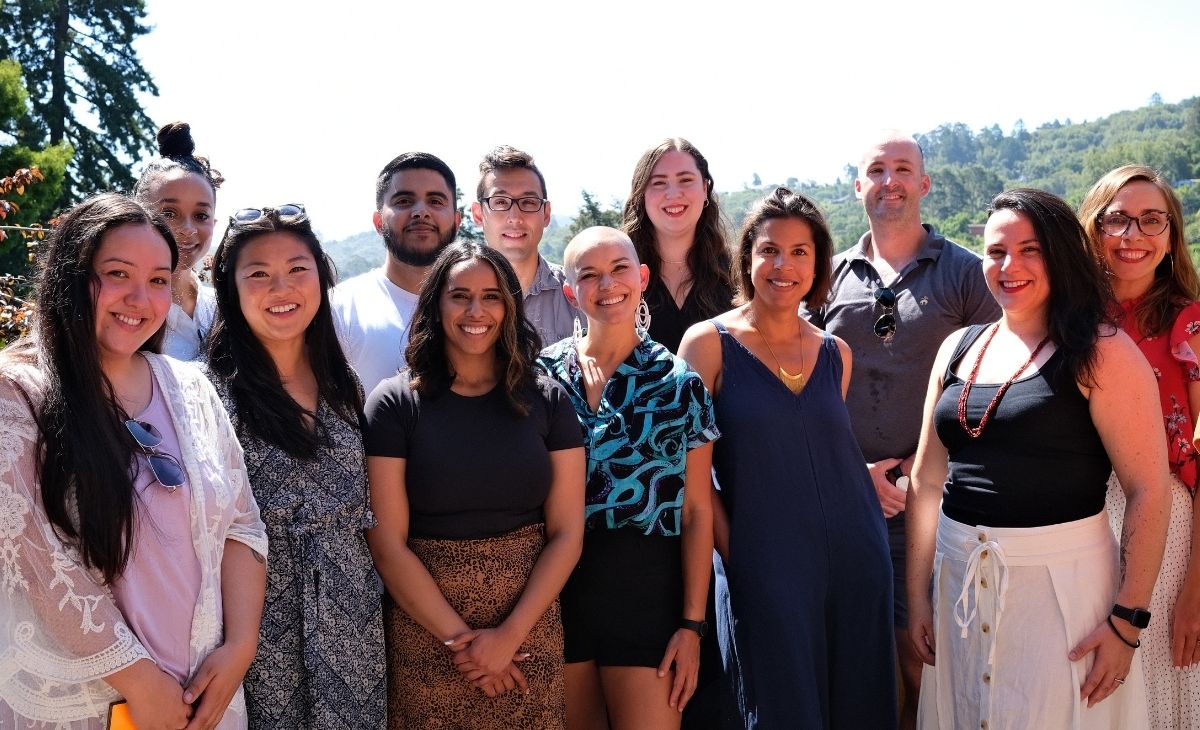
We believe the tech industry can and should create economic prosperity for everyone, and be a place where tech employees and companies are engaged and active participants in making our economy equitable.
Our mission is to bring together tech workers, activists, community members, and advocates to build a better tech-driven economy. We investigate and address inequities in the tech sector and those that arise from tech’s impact on our economy and communities.
HOW WE WORK
We educate the public on tech and economic equity, advocate for bold public policy, and develop equitable corporate practices that improve conditions for workers and products for everyone.

“The Responsible Contracting Standard not only opened my eyes to the inequalities in tech contracting, but it also gave me a roadmap to reduce that inequality. Having actionable steps helps us make sure that contract workers are treated fairly. [The standard] always gives me something to refer to or go back to. It keeps me accountable whenever I have questions. I’ve got it bookmarked.”
Elizabeth Anderson, Co-Founder of LunarLab
WHAT WE DID
Our community came together to deepen our understanding of economic justice issues and advocate for a better tech economy. We uncovered inequities, championed critical legislation, and developed tools to ensure that good policy actually works.

We Shed Light on Tech’s Shadow Workforce
This year we released breakthrough research for the Contract Worker Disparity Project, investigating how an entire class of tech workers has been locked out of tech’s prosperity. This first-of-its-kind, worker-centered research initiative combining workers’ first-hand accounts, industry research, and a sector-wide sampling revealed the inequities of contract work practices in the tech industry. From this research we developed a responsible contracting standard and public policy agenda, so we can strengthen protections for contract workers at values-aligned companies today and ensure that all workers win their rights tomorrow.

We Expanded Pay Transparency in California
As a result of our findings from the Contract Worker Disparity Project, we built a strong coalition of contract workers, full-time tech employees, state legislators, and on-the-ground organizations to craft and pass the Pay Transparency for Pay Equity Act, SB 1162, into law. On September 27th, Governor Newsom signed SB 1162 into law, taking us one step closer to equal pay for equal work for all Californians.

“Passing the Pay Transparency for Pay Equity Act was a crucial step to narrowing the wage gap for women, people of color, and contract workers everywhere in California. TechEquity’s research was instrumental in shedding light on these disparities; I’m so grateful for our partnership in this campaign.”
CA State Senator Monique Limón, Author of SB 1162

We Investigated Tech’s Role in Housing Inequity
We launched the Tech, Bias, and Housing Initiative to examine the promise and perils of housing technology and to craft public policy and corporate practice solutions to potential harms. This year, we released three papers that explored tech’s impact on tenant screening, corporate homeownership, and alternative financing models. Our research sparked conversations on and offline about tech’s role in the housing market—and laid the groundwork for public policy and corporate practice changes to come.

We Launched an Anti-Gouging Calculator for Renters
At the end of the year, we launched the Tenant Protections Rent Calculator, the most comprehensive anti-gouging rent calculator in California. Three years after the Tenant Protection Act of 2019 was passed, it became clear to us that the law only worked if renters knew their rights. With a patchwork of local rent control laws and convoluted eligibility requirements for both local and state policy, it quickly became apparent that we needed a tool that was comprehensive, clear, and easy to use by any renter in California. The Tenant Protections Rent Calculator combines the Tenant Protection Act and local laws into a single quiz and calculator, helping renters across California understand what protections they’re eligible for and how to fight against illegal rent hikes.

We Created Digital Community
Even as our events series remains fully online, our community still managed to come together. We held more than 20 events with thousands of attendees tuning in remotely. We tackled the most pressing issues of the year, connecting them to the systemic roots that have been here for decades. We heard from experts on housing, labor, and equity in the tech industry.
Event Highlights
We had a candid discussion with Y-Vonne Hutchinson about her book How to Talk to Your Boss About Race. Hutchinson shared insights on how workers can think about race at work, have frank and effective conversations with more powerful leaders, center marginalized perspectives, and leverage power dynamics to get results while navigating backlash and gaslighting.
We talked a lot about housing corporatization this year, and especially its impacts in Atlanta. We heard from experts about the far-reaching impacts of corporate homeownership both locally and nationally and discussed the public policy and corporate practices needed to make the American Dream attainable in Atlanta once again.
Fresh off Google’s controversial decision to cancel her talk, we spoke with Thenmozhi Soundararajan about caste discrimination in tech: how the caste system intersects with racism, sexism, and classism in the U.S., and how existing hierarchies in tech reinforce these caste dynamics.
We spoke with author Jenny Schuetz about her book Fixer-Upper: How to Repair America’s Broken Housing Systems. We discussed public policies enacted by federal, state, and local governments that created our fundamentally unequal housing systems, and what we need to do to fix them.
At the end of the year, we faced the tech layoffs: how we got here, how the layoffs are changing the nature of the tech workforce, and how this impacts direct hires and contract workers alike.

“I really appreciate the way TechEquity communicates its values and the lens through which they examine current events. I’m also very interested in the civic tech projects they’re working on; being able to apply my technical skills to the issues I care about is really exciting to me. TechEquity is creating a wonderful space where people can listen, speak up, and involve themselves in this flexible and welcoming way—the best way to foster civic engagement.”
Jessica Wang, TechEquity Community Member
WHAT’S ON TAP FOR 2023
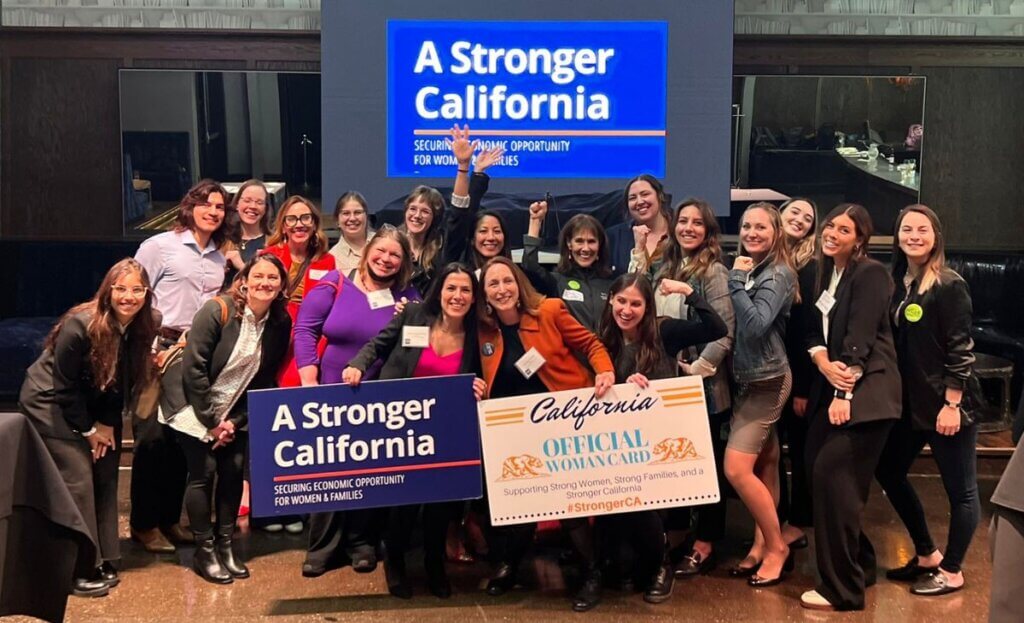
Championing contract and temp workers’ rights
Pay transparency is just the beginning. We’re working in coalition with established labor advocates to craft and pass legislation that empowers all workers, especially contract and temp workers that are left on the margins.

Making PropTech more equitable
Through comprehensive research, we’re strengthening the policies that prevent twenty-first-century housing innovations from carrying with them the racial injustices of the past. We’re deepening our research in the space, developing legislation and ethical standards to make the growing PropTech market fairer for everyday people.

Building tools for policy implementation
We’re listening to community and grassroots partners to identify gaps in housing policy implementation. From there we’re building tech and data tools that take policy from talk to action, helping people know their rights and protect/access affordable housing.

Growing the movement
We’re calling on tech workers, activists, community members, and advocates to join us in building a better tech economy.
Our Team
Thank you to our advocacy partners
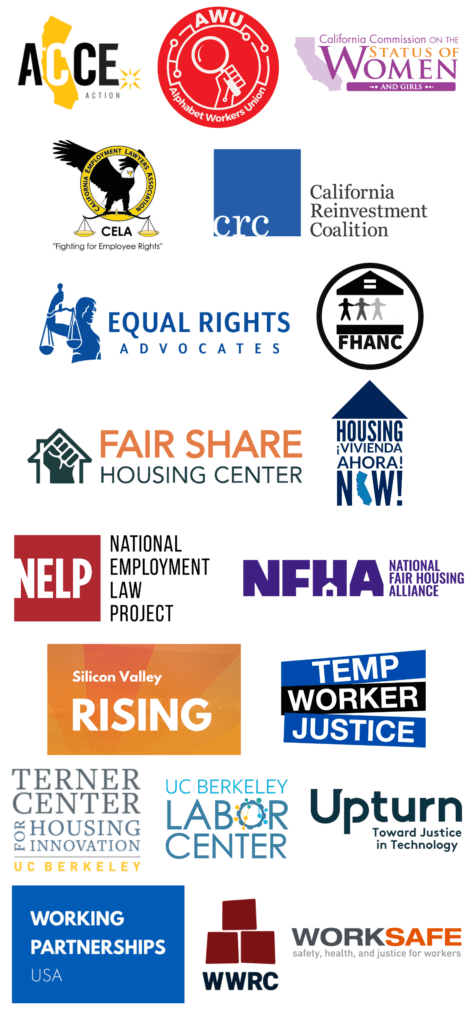
Thank you to our board
Thank you to our advisors
Thank you to our major funders
